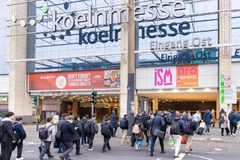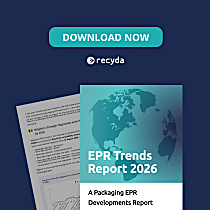Bodeva and Drug Plastics unveil child-protection cannabis closure for high brand reputation
.png)
18 Nov 2022 --- Boveda, manufacturer of two-way humidity control solutions, and Drug Plastics & Glass (DPG), supplier of pharmaceutical-grade containers, have created a new cannabis closure that abides by US child-resistant packaging regulations while striving to provide reputation protection for brands.
The Bodeva Closure system integrates The Original Terpene Shield patented formula, found in Boveda’s sachets, with DPG’s Child Resistant SecuRx closure. It provides a child-resistant package that complies with Consumer Product Safety Commission (CPSC) requirements and advanced cannabis flower protection and preservation.
“Our Boveda Closure safeguards products from trichome damage, terpene loss, over-drying, and mold, delivering a dependable, top-shelf experience for consumers that retailers can rely on and trust,” says Jayson Drake, vice president of product management at Boveda.

The product made its industry debut at MJBizCon in Las Vegas, US, the world’s largest cannabis business event, November 15-18th and is now available for wholesale purchase. It was made in the USA with FDA-approved materials.
The system is both child-resistant and senior-friendly, while using technology only preserves flower character, flavor, potency and aroma.
.png) Boveda and Drug Plastics pass CPSC requirements for its new cannabis packaging closures. How it works
Boveda and Drug Plastics pass CPSC requirements for its new cannabis packaging closures. How it works
The closure passed CPSC requirements when combined with 1, 3.5, and 7-gram plastic jars manufactured by DPG. The jars can be created with post-consumer recycled materials.
Each closure system features four grams of Boveda’s most popular cannabis-specific formula to maintain 62% relative humidity. An all-natural saturated salt solution embedded in the Boveda Closure jar cap creates a monolayer of purified water molecules around plant trichomes, locking in terpenes and other volatiles.
“We use the Boveda Closure system with our flower jars because they’re a convenient way to package and preserve our medical cannabis. It’s important our medicine retains its high quality and delivers the consistent results our patients are looking for,” says Aaron Barth, founder and owner at Tricann, a Maine-based, vertically-integrated retailer.
Improve brand reputation
Bodeva is using the possibility of brands to protect their reputations by using its product. This marketing tactic is to secure customer trust through its child-safe guard and fresh maintenance technology.
In a recent study, the Whitney Economics US Cannabis Business Conditions Survey Report found that 58% of cannabis businesses are breaking even or losing money.
Bodeva sees its product as a way for companies in the cannabis markets to use to ensure their brand’s reputation as the industry continues “to see falling prices and an oversupply of products.”
“We have been working closely with DPG since the initiation of this project to present a next-level solution to the marketplace with sustainability and safety in mind,” says Jayson Drake, Vice President of Product Management at Boveda.
.png) Cannabis packaging must follow many regulations, which some believe reduces its ability to be environmentally sustainable. Contradicting research
Cannabis packaging must follow many regulations, which some believe reduces its ability to be environmentally sustainable. Contradicting research
However, according to a report published in Grand View Research, the market value of the legal marijuana industry this year is valued at US$16.7 billion. It is forecast to reach US$102.2 billion by 2030 with a CAGR of 25.5%.
Other companies have been innovating in the cannabis packaging space. Last month, Identiv and TrueGreen announced an innovative tamper seal for managing inventory that uses radio frequency identification technology to optimize consumer experience by allowing them to access test results and product information embedded into the label.
Environmental slowdown
However, members of the marijuana packaging industry find the legislation on the items as the culprit to the lack of environmental sustainability.
“Regulation itself is the main cause of sustainability issues. In order to get the highest quality product and reduce contaminants – which is hugely important – many countries or states are not allowed to reuse any container,” Dymapak’s CEO and founder, Ross Kirsh, previously told PackagingInsights.
He blames requiring child-proof packaging as a leading source of the lack, saying it causes unintended consequences of producing more packaging. “Then, when regulation mandates greater packaging volume, it puts pressure on price; low-cost solutions win out, which are unfortunately in most instances not recyclable.”
By Sabine Waldeck











